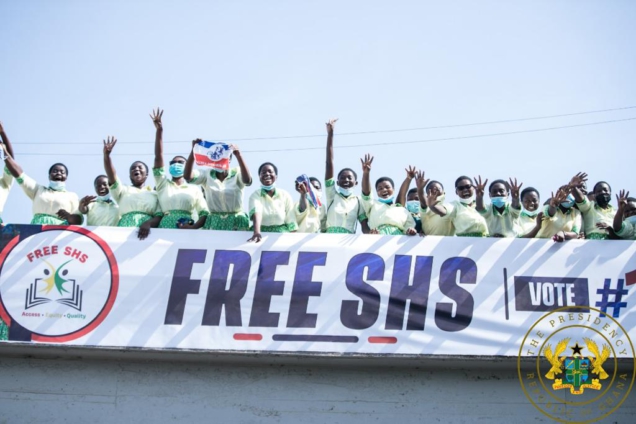As Ghana approaches the 2024 election year, many citizens are voicing strong support for key government programs while also calling for changes to less popular policies.
According to a recent Afrobarometer report, a significant majority - 85% of Ghanaians - support the continuation of the Free Senior High School (Free SHS) initiative, while the Planting for Food and Jobs program (81%), One District One Factory (71%), and One Village One Dam policy (60%) also retain high levels of public approval.
However, there is widespread opposition to the electronic transactions levy, commonly known as the E-levy, with 79% of respondents calling for its removal.
This contrasting feedback suggests that while Ghanaians appreciate initiatives aimed at education, job creation, and local development, there is growing resistance to tax policies perceived as burdensome, particularly in challenging economic times.
The Afrobarometer report also sheds light on the most pressing issues Ghanaians want the next government to address.
Unemployment topped the list, with 41% of respondents identifying it as the most urgent concern. Infrastructure and road development followed closely at 38%, while healthcare ranked third, with 33% of citizens indicating it as a priority area.
The report highlights the economic hardships facing Ghanaians, with 82% of respondents saying they have experienced some level of poverty over the past year, a stark increase from just 19% in 2017.
Almost half of those surveyed (45%) described their poverty levels as moderate to severe.
Additionally, seven out of ten respondents reported going without cash income at least once in the past year, while many faced shortages in essential services like medical care (54%), water access (44%), food supply (44%), and cooking fuel (42%).
Optimism about the country's economic outlook is dwindling, with less than half of the population (45%) expecting conditions to improve over the next year.
Furthermore, satisfaction with the government’s economic performance has significantly declined, reflecting widespread frustration over rising living costs and limited access to key services.
Latest Stories
-
Ras Mubarak: Open letter to the President of the Republic of Ghana
28 minutes -
Alumnus Returns with a ‘Gift’: Dr Omane Boamah transforms Pope John SHS roads
47 minutes -
Jorginho joins Flamengo after Arsenal departure
2 hours -
Beckham scores a winner with the royal circle
2 hours -
Was that Djokovic’s goodbye to the French Open?
2 hours -
Gauff and Sabalenka face off in French Open final
2 hours -
Sinner beats Djokovic to set up Alcaraz final
3 hours -
Why ‘the game is about glory’ has a hollow ring at Spurs
3 hours -
Italy in ‘difficult moment’ after Norway defeat
3 hours -
Global EarthTribe applauds Ghana’s ban on Styrofoam, offer support for sustainable alternatives
3 hours -
Ancelotti’s first game as Brazil boss ‘special’ despite Ecuador draw
3 hours -
Makers and Partners leads planting exercise at GAF Critical Care and Emergency Hospital
3 hours -
OSP lied about Ofori-Atta’s medical report – Frank Davies claims
3 hours -
Defence Minister welcomes Northern chiefs in Central Region, praises their support
3 hours -
Ghana’s most potent weapon against corruption is OSP – Kissi Agyebeng
4 hours

